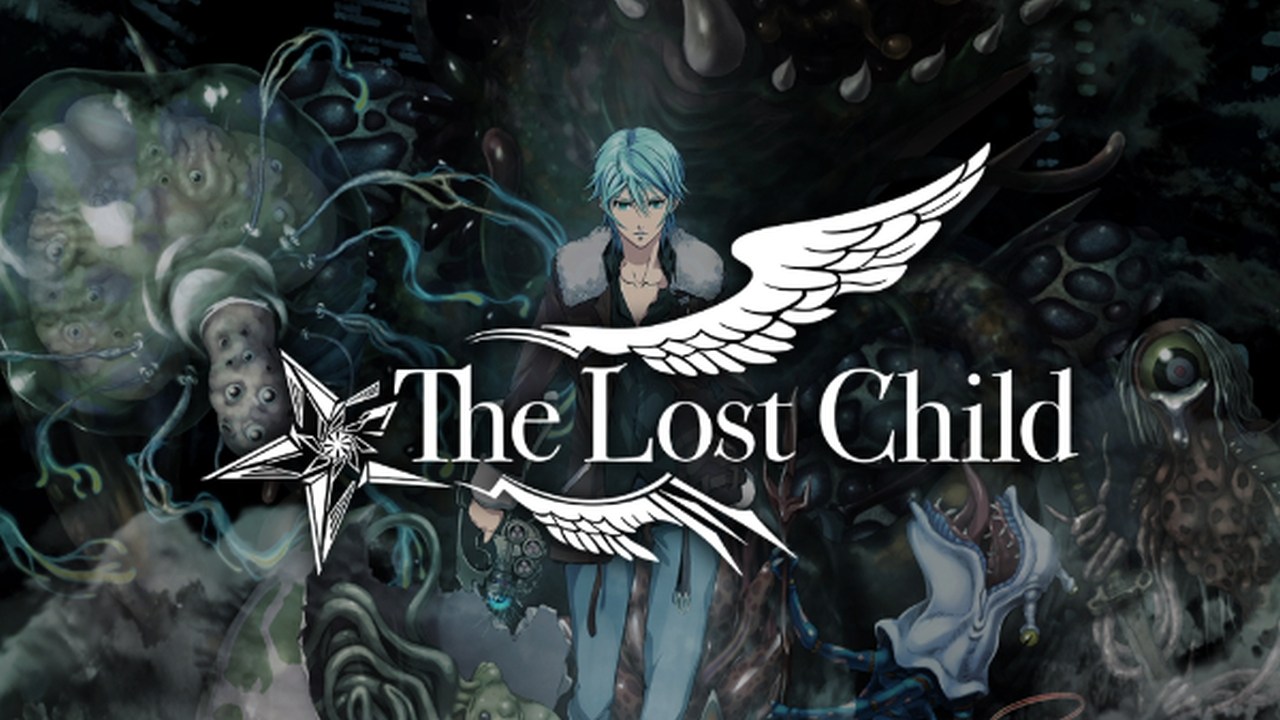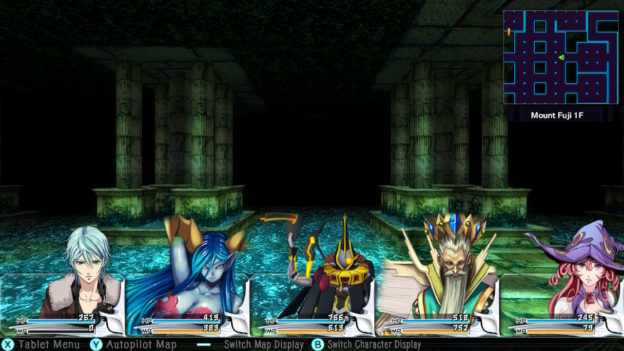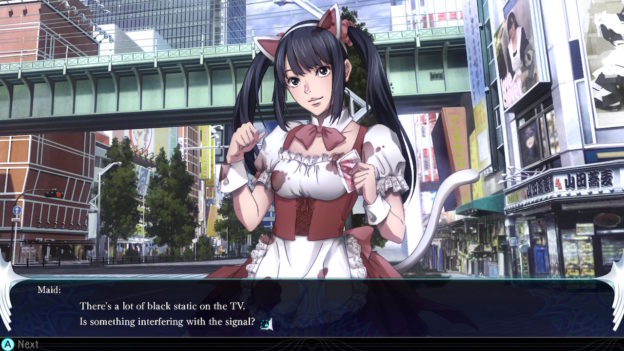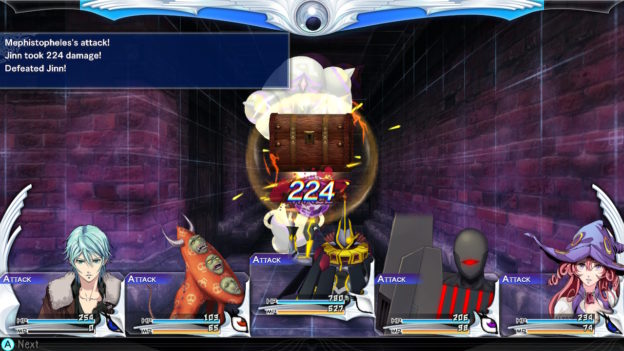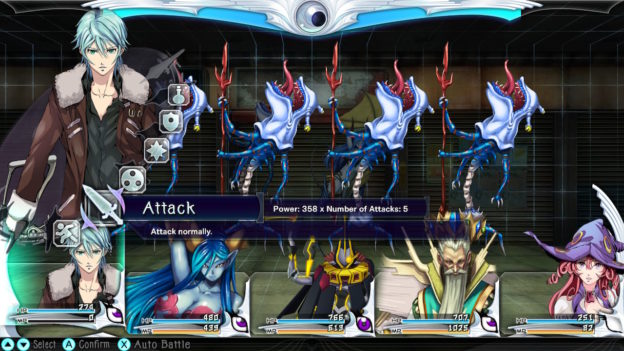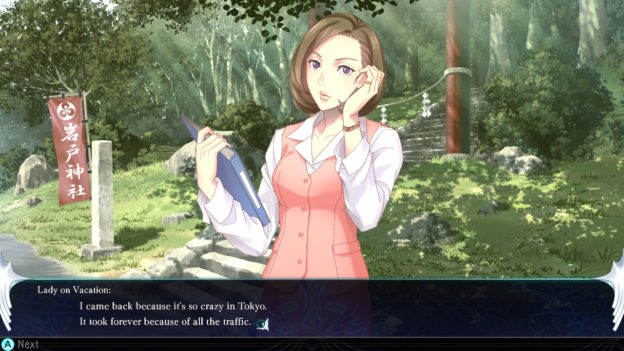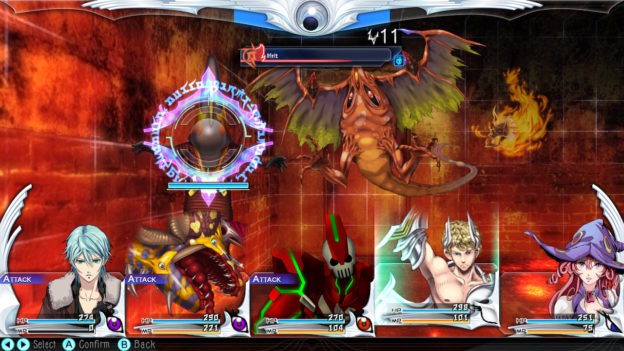The Lost Child is a JRPG that follows-up on 2011’s El Shaddai: Ascension of the Metatron. Set in contemporary Japan, you play as an occult journalist named Hayato Ibuki. After being notified by an angel called Lua that God has chosen him, Hayato finds himself amidst a conflict between supernatural forces. Now he and Lua must challenge and capture demons and angels alike to stop a group of Lovecraftian deities from taking over the world. But after running into Samael and his crew of fallen angels, it seems their mission might not be as they thought. The quirky cast and the crazy story make the plot the best part of the game.
Dungeons are delved in first-person and are labyrinthine in structure. The game’s mazes are forgiving, with most floors providing a save point easy to come back to after unlocking shortcuts. Each map loops in on itself, so backtracking isn’t tedious. The auto-walk feature allows you to roam through explored areas with a simple touch. Bizarrely, no run button exists. With dungeon crawlers from the SNES era having a run button, there isn’t an excuse for its omission.
Combat comprises of the standard random turn-based battles. Luckily a few things set The Lost Child’s battle system apart. Allies can generate aggro, making foes more likely to target them. Keeping aggro off of the Hayato and any healers is smart because the game ends if he dies.
Hayato learns no skills, but he can use astral burst. This skill allows you to deal massive damage to adversaries and capture them if their HP reaches zero. It’s not a move without its compromises, as it renders the demons in your party unable to act for the duration of the turn. Yet if you linger on using astral burst for too long, the burst gauge may overflow. This reduces your burst power back to zero and will make the astral burst ability unavailable.
Capturing a foe, or “astral” as they’re called, lets you purify and level it. To accomplish this, you must feed an astral karma, obtained by winning fights and selecting dialogue choices. A purified astral can enter your team as an ally, but it only earns experience from karma, not battle. Most astrals have a level cap that can only be surpassed through promotion. Promoting an astral grants it another skill and enhances its base stats. Unfortunately, this also resets an astral’s current level to one. Resetting astral levels just seems like a cheap way to extend playtime.
While Hayato cannot learn abilities, Lua and astrals both can. Skills are learned randomly during battle. When an ally learns a skill, their command will be overwritten by a use of their new skill instead. This can be problematic if Hayato is low on health and Lua uses her brand new hit-rate buff instead of healing him like you told her to.
Astrals have really interesting designs. Demons are animalistic and blob-like, fallen angels are robotic and alien, and angels are armor-clad and noble. The mediocre presentation brings the art down, I regret to inform. The animation is minimal, even during cinematics. In battle, enemy portraits mostly expand and compress, as if being manipulated by the “stretch/skew” tool in MS Paint. Sadly, the soundtrack is also almost entirely forgettable and generic. On the flip-side, the English and Japanese voice tracks are both largely competent, doing well to bring to life the title’s charming, colorful cast.
With all that being said, I should advise you: this game is priced at $50 on the eShop. I like the game, but it feels very much like a poor man’s Shin Megami Tensei. Its presentation is sort of janky, and the gameplay can be quite basic. It appears that physical copies are being sold by online retailers for less, so it might not be too difficult to find it for a more reasonable price.
The Lost Child is a style of game has been done to death, but there are some interesting ideas found within the aggro and astral burst systems. Sure, the way it presents itself may be a tad lackluster, but if you look past its flaws, you can find a story with a ton of heart. This game’s probably not going to blow you away, but if you can find it cheap, it’s worth the plunge.
Review: The Lost Child (Nintendo Switch)
Familiar Fan Service
The Lost Child is a style of game has been done to death, but there are some interesting ideas found within the aggro and astral burst systems.

